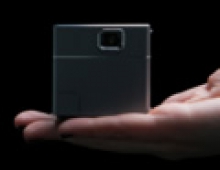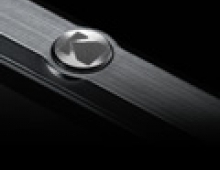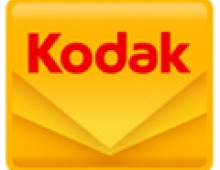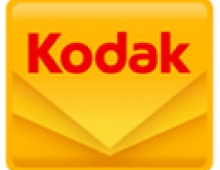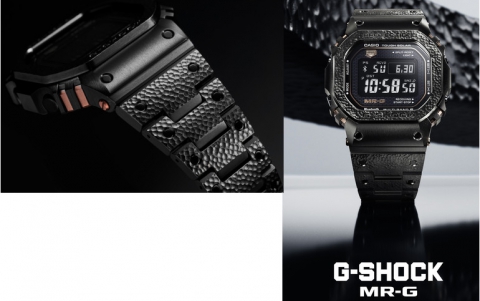
Kodak To Stop Camera Production
Eastman Kodak Company announced today that, as a result of its strategic review process to drive sustainable profitability, it plans to phase out its capture devices business - comprising digital cameras, pocket video cameras and digital picture frames - in the first half of 2012.
Kodak, which filed for bankruptcy protection last month, will instead expand its current brand licensing program, and seek licensees in these categories. Following this decision, Kodak's Consumer Business will include online and retail-based photo printing, as well as desktop inkjet printing.
Kodak added that it would continue to honor all related product warranties, and provide technical support and service for its cameras, pocket video cameras and digital picture frames.
"For some time, Kodak's strategy has been to improve margins in the capture device business by narrowing our participation in terms of product portfolio, geographies and retail outlets. Today's announcement is the logical extension of that process, given our analysis of the industry trends," said Pradeep Jotwani, President, Consumer Businesses, and Kodak Chief Marketing Officer.
Upon completion of the phase out, Kodak expects to achieve annual operating savings of more than $100 million. Kodak expects to incur a charge related to separation benefits of approximately $30 million resulting from the exit of the business.
In addition to its Consumer Businesses segment, Kodak has a Commercial Businesses segment that includes the Digital and Functional Printing, Enterprise Services and Solutions, and Graphics, Entertainment and Commercial Films units. Kodak?s digital businesses now comprise approximately three-fourths of total revenues.
Kodak continues to have a strong position in the personal imaging market. While photos are increasingly taken on multi-function mobile devices, Kodak technology makes it easy for consumers to produce a broad range of photo products, anywhere, anytime - from prints to photobooks, photo greeting cards and personalized calendars.
Kodak's continuing consumer products and services will include:
- Retail-based photo kiosks and digital dry lab systems. Kodak has more than 100,000 kiosks and order stations for dry lab systems around the world, with some 30,000 of those units connected to the most popular photo-sharing sites.
- Consumer inkjet printers, where Kodak has outpaced overall market growth for several years.
- Kodak apps for Facebook, which make it easy for consumers to obtain photo products using photos from their Facebook albums.
- Kodak Gallery (www.kodakgallery.com), an online digital photo products service.
- The Kodak camera accessories and batteries businesses. These products are universally compatible with all camera brands.
- The traditional film capture and photographic paper business, which continues to provide high-quality products and solutions to consumers, photographers, retailers, photofinishers and professional labs.
Kodak added that it would continue to honor all related product warranties, and provide technical support and service for its cameras, pocket video cameras and digital picture frames.
"For some time, Kodak's strategy has been to improve margins in the capture device business by narrowing our participation in terms of product portfolio, geographies and retail outlets. Today's announcement is the logical extension of that process, given our analysis of the industry trends," said Pradeep Jotwani, President, Consumer Businesses, and Kodak Chief Marketing Officer.
Upon completion of the phase out, Kodak expects to achieve annual operating savings of more than $100 million. Kodak expects to incur a charge related to separation benefits of approximately $30 million resulting from the exit of the business.
In addition to its Consumer Businesses segment, Kodak has a Commercial Businesses segment that includes the Digital and Functional Printing, Enterprise Services and Solutions, and Graphics, Entertainment and Commercial Films units. Kodak?s digital businesses now comprise approximately three-fourths of total revenues.
Kodak continues to have a strong position in the personal imaging market. While photos are increasingly taken on multi-function mobile devices, Kodak technology makes it easy for consumers to produce a broad range of photo products, anywhere, anytime - from prints to photobooks, photo greeting cards and personalized calendars.
Kodak's continuing consumer products and services will include:
- Retail-based photo kiosks and digital dry lab systems. Kodak has more than 100,000 kiosks and order stations for dry lab systems around the world, with some 30,000 of those units connected to the most popular photo-sharing sites.
- Consumer inkjet printers, where Kodak has outpaced overall market growth for several years.
- Kodak apps for Facebook, which make it easy for consumers to obtain photo products using photos from their Facebook albums.
- Kodak Gallery (www.kodakgallery.com), an online digital photo products service.
- The Kodak camera accessories and batteries businesses. These products are universally compatible with all camera brands.
- The traditional film capture and photographic paper business, which continues to provide high-quality products and solutions to consumers, photographers, retailers, photofinishers and professional labs.

